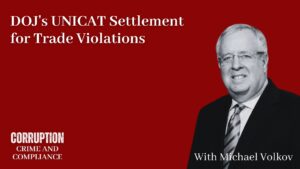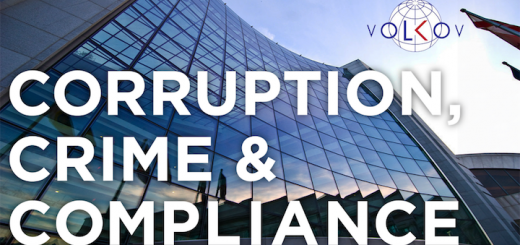Episode 376 — DOJ’s Unicat Settlement and the Future Look of Trade Enforcement

What happens when a company inherits a sanctions violation through acquisition, and acts fast to fix it? Can a robust post-acquisition response really save a parent company from prosecution?
In this episode, Michael Volkov unpacks the fascinating DOJ-led global enforcement action against UNICAT Catalyst Technologies – a case that reflects the U.S. government’s intensifying focus on trade enforcement across sanctions, export controls, and customs. This resolution marks the first declination under DOJ’s National Security Division M&A policy, showcasing the power of voluntary disclosure, cooperation, and remediation in today’s enforcement environment.
You’ll hear him discuss:
- How DOJ, OFAC, BIS, and CBP coordinated parallel resolutions against UNICAT
- The $3.3 million forfeiture and additional penalties tied to underpaid duties and unlawful exports
- Why DOJ declined prosecution of UNICAT’s parent company, White Deer, under its M&A policy
- The former CEO’s role in orchestrating 23 unlawful sales to Iran, Venezuela, and Cuba
- The importance of identifying willful intent in sanctions violations — and when DOJ disclosure is required
- The risks of failed pre-acquisition due diligence and the value of strong post-acquisition integration
- How concealment tactics like falsified invoices and coded emails were used to hide dealings with sanctioned entities
- Key lessons for global companies navigating the new era of trade compliance and enforcement.















